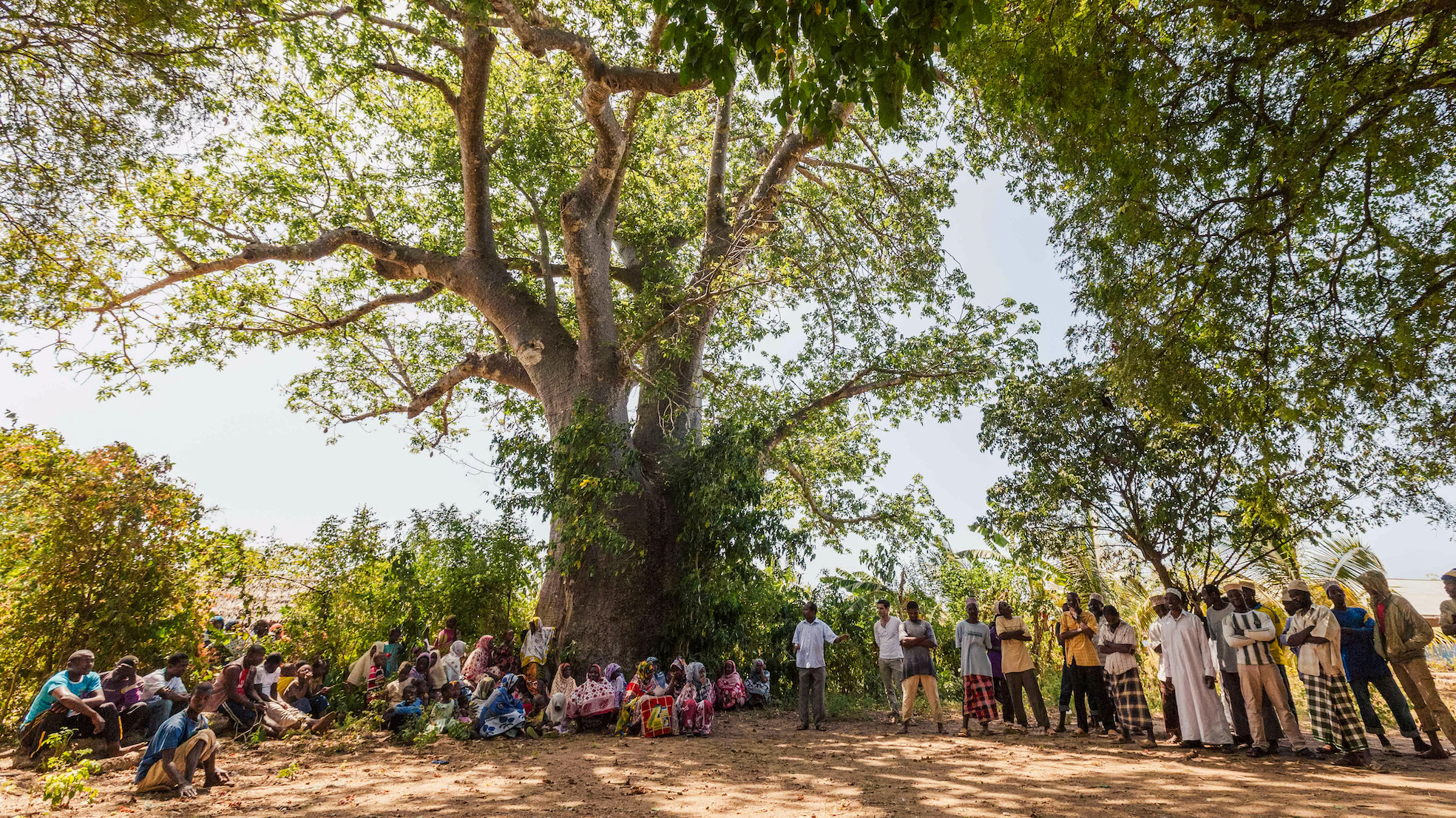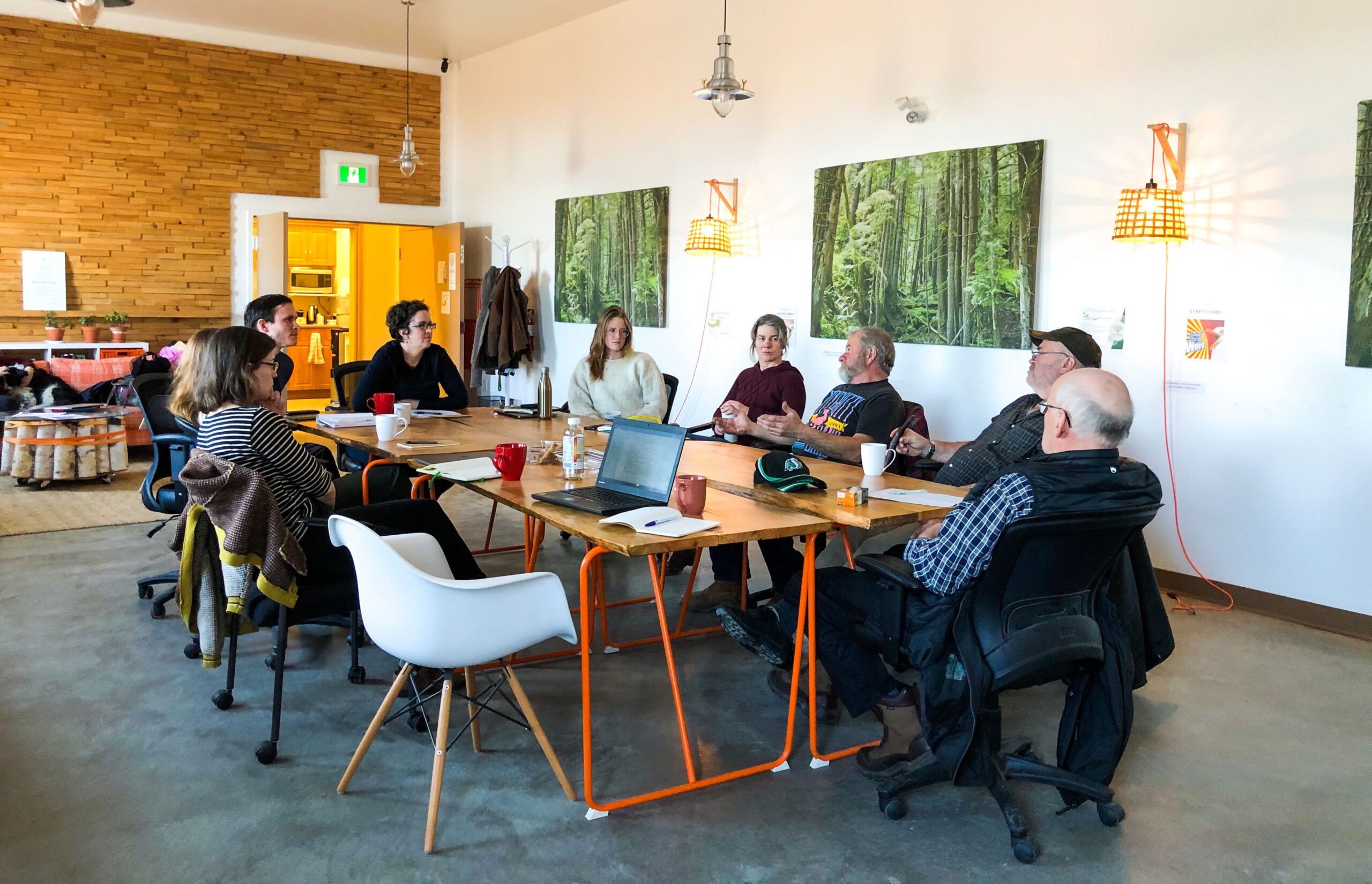The Community Forests Story
By Monica Allaby, Posted on March 30, 2021
You may be wondering how Community Forests International came to work in Atlantic Canada and in Zanzibar, Tanzania — two very distinct regions. Let’s take a look!
In 2006, Mbarouk Mussa Omar — a community leader and climate activist on Pemba Island, Zanzibar — befriended a young Canadian tree-planter, Jeff Schnurr, who was traveling in the region. Mbarouk had a vision to bring back the lost forests on his home island, and Jeff was inspired to help him any way he could. Local community groups around Pemba Island quickly stepped up to get involved and, when the next tree-planting season arrived in Canada, a group of planters helped to raise money through Plant 4 Pemba— a fundraiser that lives on in tree planting camps to this day. Thus, Community Forests International and our local partner organization, Community Forests Pemba were created.
From the beginning, Community Forests International and Community Forests Pemba were built on mutual respect, trust, and friendship, which remain the foundation of the partnership to this day. The two organizations worked closely together to advance climate adaptation in Zanzibar on community-led projects that range from agroforestry and tree-planting, to small-scale farming and beekeeping. While Community Forests Pemba oversees programs and a team of expert field staff, Community Forests International helps secure the resources that allow the work to grow. To date, Community Forests’ work has reached over 58,000 people in 50 communities.

People on the remote Islet of Kokota gather to discuss community priorities with staff from Community Forests.
The success of our work together in Zanzibar inspired Community Forests International to establish an office in rural New Brunswick in 2010. The lessons of community-centered and people-forward work in Zanzibar has led to the exploration of innovative new pathways for achieving climate and community resilience in Atlantic Canada. While the regions we work in are home to unique ecosystems, cultures, and challenges — we share the same knowledge that the most successful solutions to the climate crisis benefit both forests and the people directly connected to them.
We created one of Canada’s first forest carbon offset projects to finance the conservation of the endangered Acadian forest, and the organization continues to lead the development of adaptation strategies that preserve forest health as the climate changes. We now help family forest owners access these same resources and opportunities, and together we are striving to protect and restore the Acadian forest as one of Canada’s greatest carbon storehouses.

A group of family forest owners meet with Community Forests International staff in Nova Scotia to discuss the challenges they face.
Today, the Community Forest network is growing. In 2020, Community Forests Pemba inaugurated a brand new office on Unguja Island, expanding the benefits of our work for community and climate across the Zanzibar Archipelago. What’s more, starting in 2021, we will be supporting coastal communities of Mozambique as they adapt the mangrove restoration that has been so successful in Zanzibar. In Canada, we continue to grow our network of climate forests — protecting even more of the special Acadian forest across the Maritimes while inspiring a movement for people and planet in communities across the country.
The innovations that our work has generated are increasingly needed in so many at-risk communities today, and we strive to share what we have learned and our successes with others. We are working to put equity and justice at the forefront of all of our work, and to elevate the knowledge and voices of marginalized communities. We know that sustainable change is community-led change, and that fostering strong relationships between people and forests is critical to ensuring a climate-secure future.
With your support, we continue to protect and restore forests while helping communities adapt to climate change, build economic prosperity, and champion gender and social equity.
